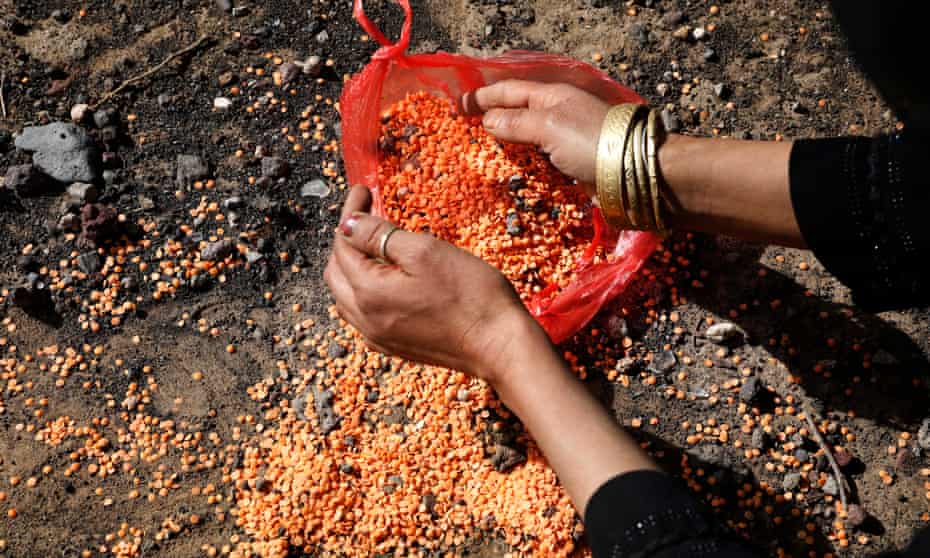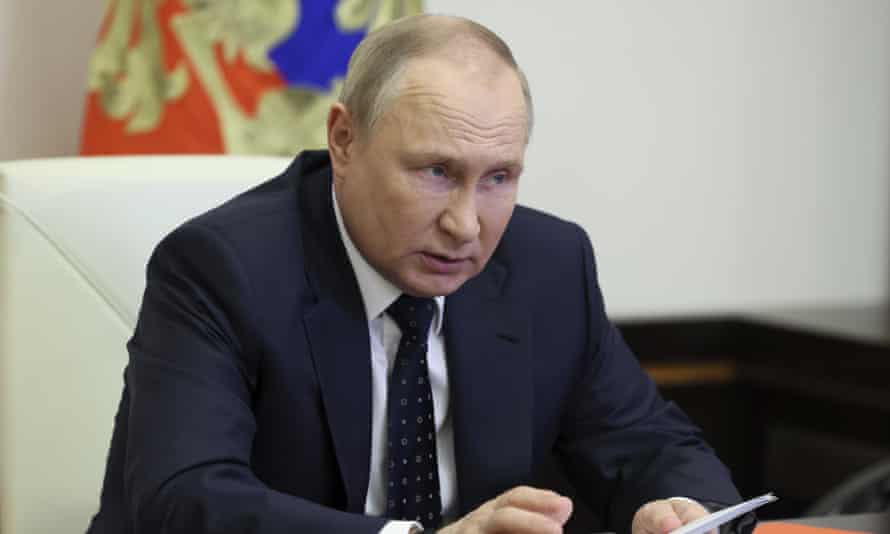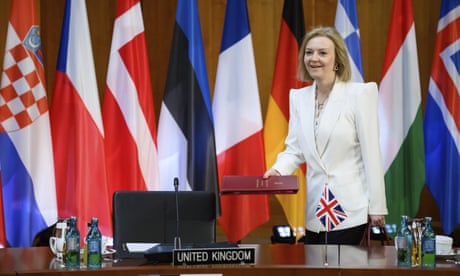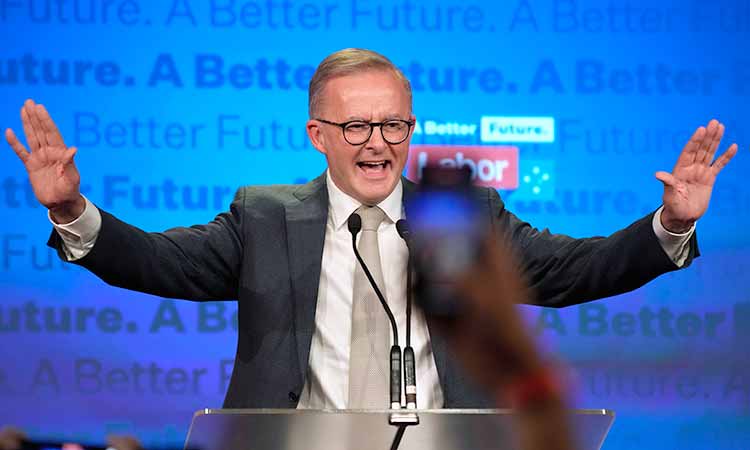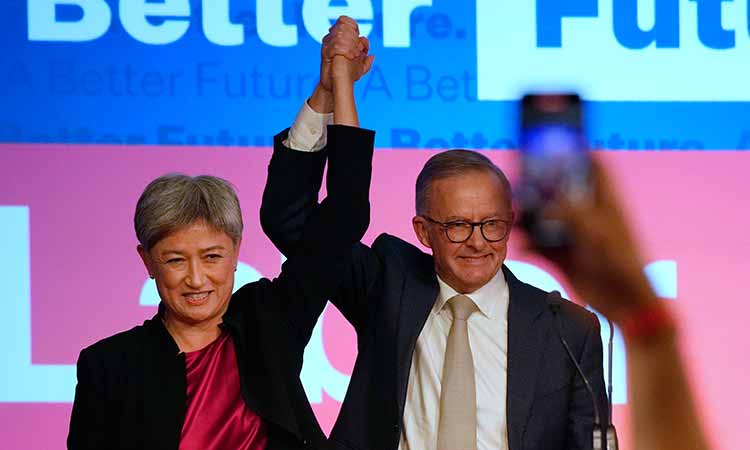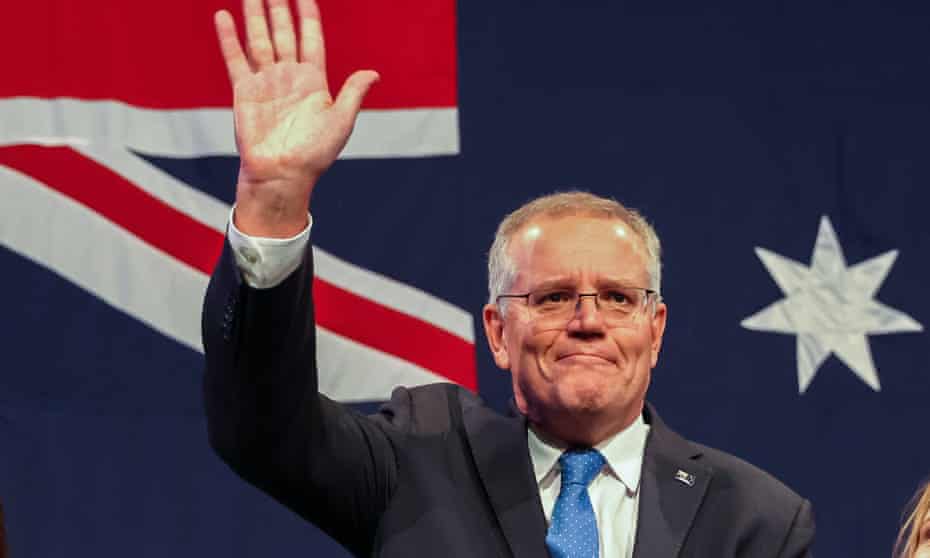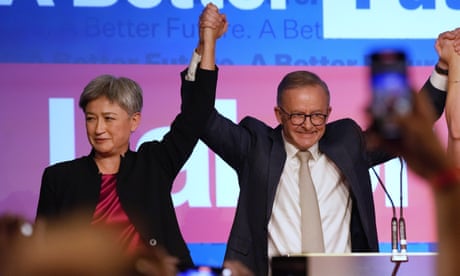War in Ukraine is the latest threat to the whole intellectual edifice of globalisation
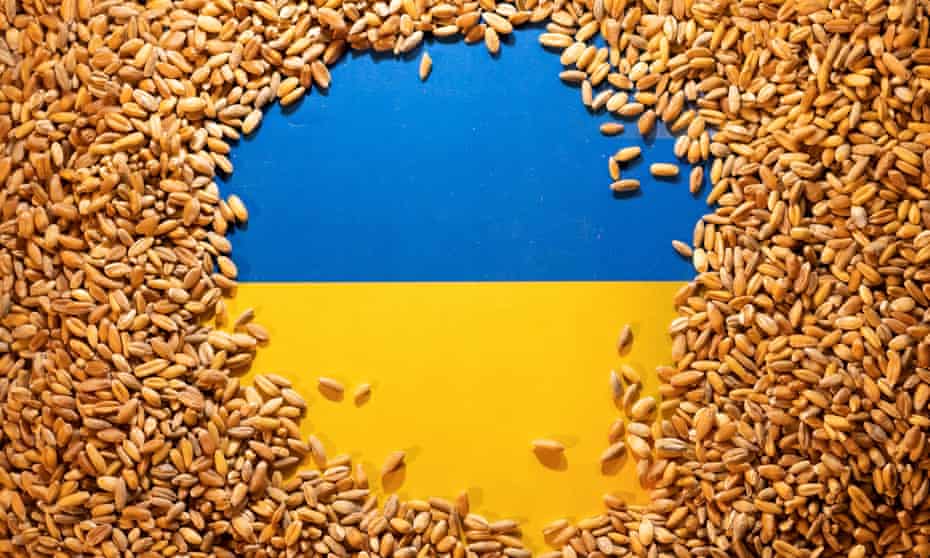
Sun 22 May 2022
All my life, the widely shared assumption has been that there will always be food to buy – albeit at a price. No more. Suddenly, Russia’s successful blockade of Ukraine, choking off its crucially important exports of grain and oilseeds, has challenged all that. The west is right to hail Ukraine’s remarkable achievements on the battlefield – but Russia holds cards in this war that may yet prove to its decisive advantage. When the UN secretary-general warns of the spectre of a world food shortage, take notice. Equally, the governor of the Bank of England has been much derided for warning of a food apocalypse: he may choose his words clumsily, but he is right.
What is provoking these warnings is that there is no way to replace Ukrainian grain exports, which constitute 9% of the world’s, made worse by the decline in Russia’s grain exports. Only a fraction of Ukraine’s cereal harvests can find their way into global markets via road or through ports in Romania – and Russia has no intention of lifting its blockade while it faces sanctions that may last years, given the stalemate in Ukraine.
The price of grain is thus certain to rise – it is already 59% higher than in January – reflecting that there is less to go around. Those who can’t pay will simply go without, raising the prospect of famine spreading to hundreds of millions in poorer countries and a new flood of refugees.
Nor will Britain be unaffected, although it is largely self-sufficient in grain. Overall, we rely on imports to meet around half our food demands. All over the world, countries facing shortages of grain and other foodstuffs are simply halting their food exports; already, 22 countries have prohibited 10% of all food trade. Our four major food suppliers are our EU neighbours and former partners, now all too often turned into enemies: France, Ireland, the Netherlands and Germany.
Yet, just at this moment the Johnson government, with its habitual reckless incompetence and obsessive hatred of all things EU related, is prepared to risk an EU trade war by unilaterally abrogating the Brexit treaty. The UK may not want to damage crucial EU food imports, already deferring any regulatory checks until the end of next year. But why should EU member states play ball with a country whose leader they regard as a deceitful clown in hock to the worst of his party’s right, who never loses the chance to criticise the common agricultural policy (CAP), built to ensure European food security?
Why should EU members play ball with a country whose leader they see as a deceitful clown in hock to his party’s right?
Suddenly the CAP looks like a strategic asset, with the EU recently moving to strengthen its famers’ productive capacity and self-sufficiency in ways wholly at odds with Britain’s disdainful neglect of its own farmers. The EU may decide in response to Britain’s provocation that EU food security is of paramount importance, directing food exports only to where there is more need than Britain – for example, increasing its already hefty food support to Ukraine – or just making haulage and shipping regulatory requirements even tougher. They can do so, secure that EU producers can sell their food elsewhere, so creating food shortages in Britain.
If the EU does not wish to go so far, it has other effective levers to make Boris Johnson back down. Russia is the world’s biggest exporter of fertilisers, whose price has now soared 300% following the west’s trade sanctions. The UK produces only two-fifths of the fertiliser our farmers need, the balance imported mainly from the EU, Germany in particular.
Fertiliser and chemical production is an area where Brexit UK sees “opportunity” in diverging from EU single market rules that assure high product and safety standards, and is a key import into Northern Ireland. The EU has only to suspend or curtail EU fertiliser exports to Britain, concerned about our desire to weaken those rules, to crucify British agricultural production, which is already reeling from sky-high feed and fuel costs.
We are so badly governed by ministers and a party living in a sealed right-wing bubble that food rationing in 2023 is a real risk. More Brexit voters might think they were lied to. The larger point is that confidence over the past 30 years that globalisation was here to stay has led to the world’s food production and distribution system becoming profoundly interdependent, concentrated in a few countries and a few powerful agribusiness companies. As my colleague George Monbiot argues in his powerful book Regenesis, the system has become ever more market-based and less resilient, with some countries, notably Britain, assuming that there was no need for wasteful things like storage facilities, food reserves or ensuring strong domestic environmentally sustainable production.
Food, animal feed and fertilisers would flow seamlessly through safe international supply chains: domestic farmers’ margins could be squeezed to the bone. “Global” Britain could take this one step further, throwing off the crippling “shackles” of the CAP and buying cheap food from wherever, careless of UK farmers, quality food and the environment – hence the absurd trade deal dramatically favouring Australian farm producers over British ones, one of foreign secretary Liz Truss’s proudest achievements to please the Brexit right.
Today the whole intellectual edifice looks profoundly stupid – even dangerous. Resilience and sustainability in food production and distribution, along with ensuring everyone can afford to eat a healthy diet, constitute a foundational building block in our civilisation – even if mocked by Tory backbenchers and undermined by Brexiters.
Last week’s rise in inflation to 9% was driven by uncapped energy bills and escalating food prices. Britain’s inflation rate – the highest in the G7 – is because we have the least resilient, most market-based system for delivering key goods and services, and we are not a member of one of the big blocs partly able to protect itself from worldwide trends. We are a cork being thrown helplessly around the global ocean.
The curtain is finally coming down on the great Thatcherite experiment. The tragic pity is that so many millions are going to find out the hardest way – through eating crap food or, worse, going hungry – just how wrong-headed their leaders have been.
Will Hutton is an Observer columnist

The Bank of England governor warned last week of ‘apocalyptic’ food price rises. Yet war in Ukraine, climate change and inflation are already taking their toll all over the world
Simon Tisdall
Apocalypse is an alarming idea, commonly taken to denote catastrophic destruction foreshadowing the end of the world. But in the original Greek, apokálypsis means a revelation or an uncovering. One vernacular definition is “to take the lid off something”.
That latter feat is exactly what Andrew Bailey, governor of the Bank of England, achieved last week, possibly inadvertently, when he suggested Britain was facing “apocalyptic” levels of food price inflation. Tory ministers fumed over what they saw as implied criticism of the government’s masterly economic management.
In fact, Bailey was talking as much about the drastic impact of Ukraine-war-related rises in food costs and food shortages on people in poorer countries. “There’s a major worry for the developing world as well ... Sorry for being apocalyptic for a moment, but that is a major concern,” he said.
With most political and media attention narrowly focused on the emerging UK “cost of living crisis”, Bailey’s high-profile comments were timely – and revelatory. Months of warnings about a global tidal wave of hunger, rendered more urgent by Ukraine, have been largely ignored, not least by Boris Johnson’s aid-cutting government.
The cost of living is a problem in Britain. For UN agencies and humanitarian relief workers around the world, the bigger worry is the cost of dying.
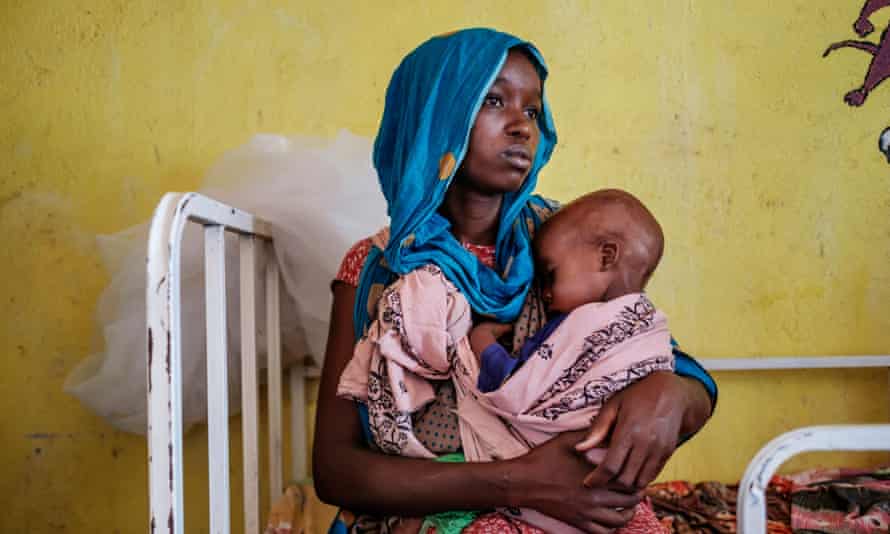
Sounding the alarm again last week, António Guterres, the UN secretary general, said Ukraine-related shortages could help “tip tens of millions of people over the edge into food insecurity”. The result could be “malnutrition, mass hunger and famine in a crisis that could last for years” – and increase the chances of a global recession.
The World Food Programme estimates about 49 million people face emergency levels of hunger. About 811 million go to bed hungry each night. The number of people on the brink of starvation across Africa’s Sahel region, for example, is at least 10 times higher than in pre-Covid 2019.
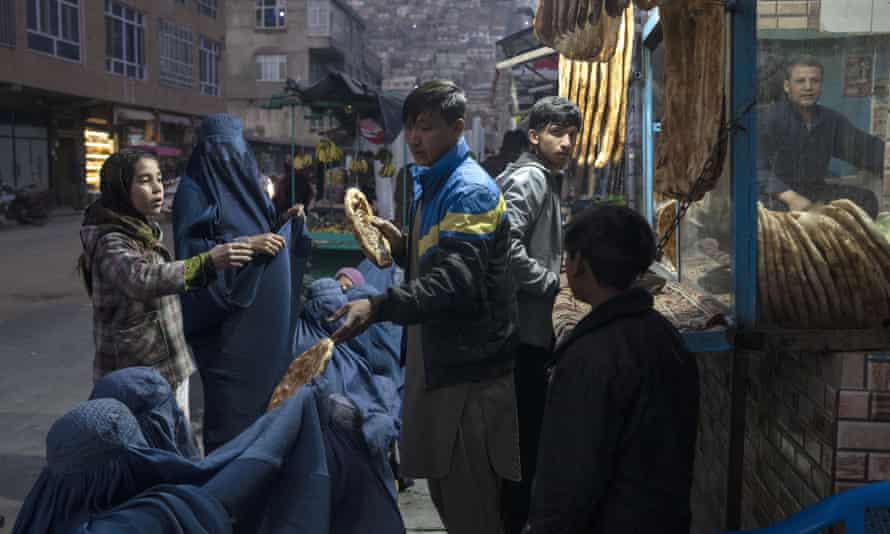
The adverse impact of Russia’s invasion on the availability and price of staples such as wheat, maize, barley and sunflower oil – Ukraine and Russia normally produce about 30% of global wheat exports – has been huge.
Ukraine’s wheat production this year is likely to be 35% down, and exporting much of it may be impossible due to Russia’s Black Sea blockade. In March, global commodity prices, recorded by the UN’s Food and Agriculture Organisation, hit an all-time high. They remain at record-breaking levels.
Russia’s war has compounded or accelerated pre-existing food deficits and inflationary trends arising from a host of linked factors: the negative economic impact of the pandemic; resulting supply-chain, employment and transport problems; extreme weather and climate-crisis-related falls in output; spiralling energy costs; and numerous other ongoing conflicts worldwide.
Middle-income countries, such as Egypt and Brazil, are exceptionally poorly placed to cope with increased food insecurity, international risk consultants Verisk Maplecroft said in a report last week. Many governments had exhausted their financial and material reserves fighting Covid and incurred large debts.
Now the cupboard is bare. “Unlike low-income countries, they were rich enough to offer social protection during the pandemic, but now struggle to maintain high social spending that is vital to the living standards of large sections of their populations,” the report said.
Argentina, Tunisia, Pakistan and the Philippines, highly dependent on food and energy imports, were among many other middle- or lower-middle-income countries facing an elevated risk of civil unrest by the end of 2022, it suggested.
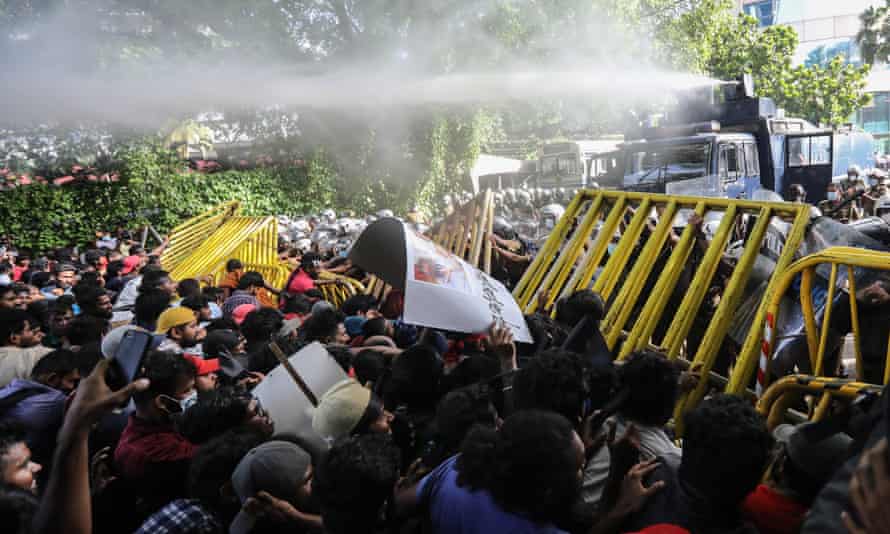
As the food “apocalypse” approaches, the poorest peoples will suffer, as they always do, while the wealthiest may be insulated, up to a point. But it is feared that the pain will rapidly move up the global food chain. With it is likely to come a surge in political turbulence, humanitarian crises, instability and geo-strategic rivalries across a hungry world.
Political upheaval & revolt
Scarce food, combined with price increases, electricity blackouts and shortages of petrol, cooking gas and medicines, provoked a political crisis in Sri Lanka this spring that serves as a discomfiting template for countries facing similar problems.
Months of protests culminated in the resignation of the prime minister, Mahinda Rajapaksa, but even his scalp did not prevent unrest turning violent. Desperate, Sri Lanka obtained a bridging loan from the World Bank last week to help pay for essential imports. On Thursday, it defaulted on its debt for the first time ever.
Double-digit inflation that left many Pakistanis unable to afford basic foodstuffs was also a major contributory factor in the fall from power earlier this year of the prime minister, Imran Khan. His attempt to cling to office created a crisis of democracy with which Pakistan is still grappling.
Longer-term factors – repressive governance, corruption, incompetence, polarisation – fuelled unrest in both countries. But dire food shortages and inflation were the catalyst that rendered the objectionable intolerable. That’s a prospect now facing insecure and unpopular regimes from Peru, the Philippines and Cuba to Lebanon and Tunisia.
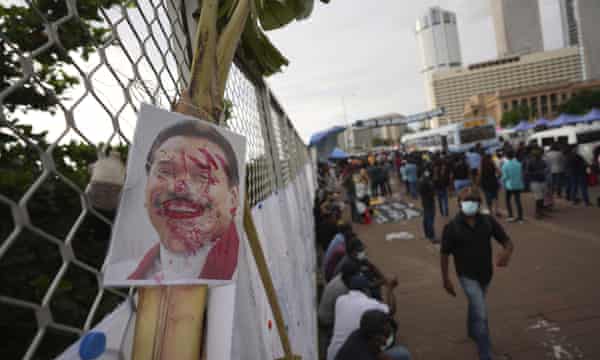
Analysts compare what is happening today in the Middle East with the Arab spring revolts. Egypt, whose government was overthrown in 2011, is the world’s largest wheat importer. About 70 million people rely on state-subsidised bread. Russia and Ukraine accounted for 80% of Egypt’s grain imports last year.
Today’s high prices and supply shortfalls, especially if they worsen, could do for Abdel Fatah al-Sisi’s regime what similar grievances did for his deposed presidential predecessor, Hosni Mubarak.
Another country to watch closely is Iran. Violent protests erupted last week in Khuzestan after the government raised the price of bread, cooking oil and dairy products. Iranians’ situation is made worse by tough US sanctions and a tyrannical, corrupt clerical regime. If living standards continue to fall, there could be an explosion similar to the thwarted nationwide uprising of 2017-18.
Starvation & famine
In many parts of the world, especially Africa, food insecurity is anything but a new phenomenon. Hunger is the norm and the risk of famine is ever-present, often exacerbated by conflict and climate change. That said, the situation, broadly speaking, is deteriorating.
The total number of people facing acute food insecurity and requiring urgent food assistance has nearly doubled since 2016, according to the Global Network Against Food Crises, a joint UN and EU project. And the scale of the challenge is expanding, up by 40 million people, or 20%, last year. The network’s latest report pinpointed countries of particular concern: Ethiopia, South Sudan, southern Madagascar and Yemen, where it said 570,000 people – up 571% on six years ago – were in the most severe or “catastrophe” phase of food insecurity, threatened by the collapse of livelihoods, starvation and death.
Guterres, the UN chief, warned that Vladimir Putin’s war was seriously affecting efforts to fight hunger in Africa. It was imperative, he said, to “bring back the agriculture production of Ukraine and the food and fertiliser production of Russia and Belarus into world markets”. As Russian state media often note, western sanctions have added to global price volatility.
The UN is calling for Ukraine’s blockaded Black Sea and Azov Sea ports to be reopened so that grain exports can resume, not least to African countries. Especially badly affected is the drought-hit Sahel region. “An absolute crisis is unfolding before our eyes,” the World Food Programme’s director, David Beasley, said following visits to Benin, Niger and Chad. “We’re running out of money, and these people are running out of hope.”
That’s partly because aid now costs more. The UN and international agencies are obliged to pay inflated prices, up about 30% from pre-Covid norms, to secure vital food aid. And it is partly because food is more expensive relative to income. An average UK household spends 10% of its income on food. In Kenya or Pakistan, it is over 40%.

Conflict & instability
Conflict is the biggest driver of hunger, whether it is the depredations of Islamist jihadists in Mali, Nigeria and the southern Philippines, the crass rivalries of regional powers in Yemen and Libya, or an unpardonable full-scale war, as in Ukraine.
The UN estimates that 60% of the world’s hungry live in conflict zones. Ukraine has shown again how war, by causing shortages of essentials and rendering normal life insupportable, leads to internal displacement, aid dependency, refugee emergencies and mass migration.
Syria’s civil war provides a cautionary example – although there are many others. A relatively prosperous country has been reduced by over a decade of conflict to something approaching a basket case. About 12.4 million people – 60% of the population – suffer food insecurity, a figure that has more than doubled since 2019.
Ethiopia’s disastrous war of choice in Tigray, which was invaded by government troops in 2019, is another case of famine following folly. The UN estimated in January that 2 million people were suffering from an extreme lack of food, and were dependent on aid in a province that was previously mostly self-sufficient.
In contrast, South Sudan has never been fully able to feed itself since independence in 2011. Ethnically rooted rivalries have often combined with competition for land and food resources with catastrophic effects. Cattle rustling is a key source of violence, while drought is another big factor.
Even when a struggling country is in the international spotlight – rarely the case with South Sudan – and the war is supposedly over, its fortunes do not necessarily improve. The plight of many Afghans appears to have gone from bad to worse after the 20-year occupation by US and Nato forces ended last year and the Taliban took charge.
The billions of dollars of aid ploughed into the country since 2001 now count for naught. Save the Children said this month that 9.6 million Afghan children are going hungry due to deepening economic woes, Ukraine, and ongoing drought. It is the country’s worst hunger crisis on record, the charity said.
Climate crisis & hunger
It is no longer controversial to assert that destroyed crops, lost livelihoods and impoverished communities – key micro-ingredients of mass hunger emergencies – are intimately connected to, and affected by, climate change and extreme weather events. But it is still hard to find concerted, effective international action or public pressure to shift the dynamic.
Horn of Africa countries such as Somalia, for example, are experiencing the worst drought in 40 years amid unprecedentedly high temperatures. As Foreign Policy magazine reported recently, when the rains did come, they were extreme and short-lived, causing flooding and breeding swarms of locusts.
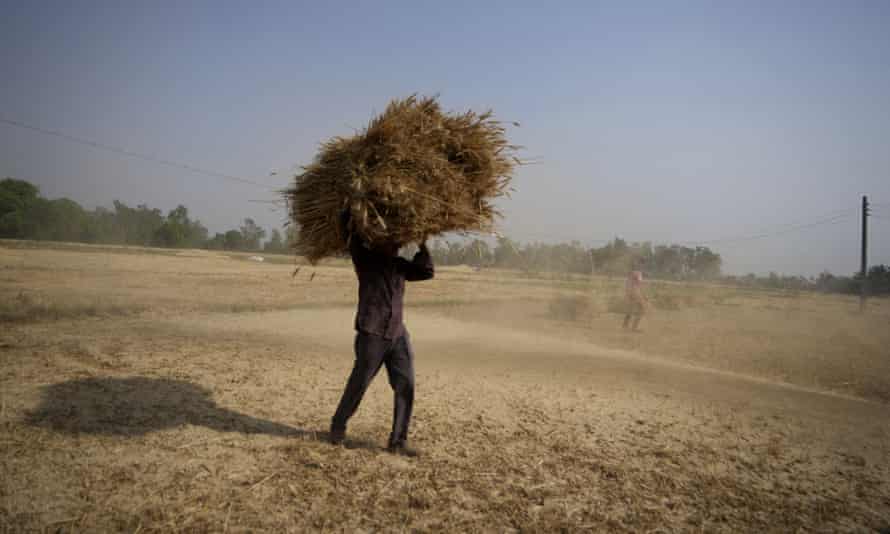
It is claimed that about 3 million livestock have perished in southern Ethiopia and semi-arid parts of Kenya since last year. Pointing to climate change, the UN says 20 million people across the region could go hungry this year. Their plight, too, has been exacerbated by Ukraine.
But when the charity Christian Aid commissioned polling on the Horn of Africa region to find out what the British public thought should be done, only 23% of those questioned were aware there was a problem. In contrast, 91% were aware of Putin’s war.
India recently demonstrated the lack of joined-up international thinking on climate, hunger and war. A record-breaking heatwave in north-west India has damaged this year’s crops. That led the government to suspend wheat exports this month. Global markets had been relying on India, the world’s second-largest producer, to make up the Ukraine shortfall. Instead of helping, Narendra Modi’s government did the opposite.
Critical links between the twin crises of climate and hunger are broadly recognised by governments and analysts, but acting to effect real change is proving harder, as the less-than-stellar outcomes of last year’s Cop26 summit in Glasgow suggest.
In the meantime, the World Bank is throwing money at the problem – at the latest count, $30bn to help low-income countries embroiled in climate and food crises.
Food & politics
When the history of the Ukraine war is written, Russia’s reckless action in weaponising food and deliberately disrupting global supplies, thereby risking the lives of countless millions, may be counted a bigger crime than even its unprovoked attack on its neighbour.
Russia’s role as a key grain and energy exporter is likely to outlive the current regime in Moscow. But its global standing and influence is diminished, probably permanently.
That is largely due to Putin’s personal failure to recognise, or accept, that the era of Soviet exceptionalism is over – and that Russia, like other countries, inhabits a newly interconnected, interdependent, mutually responsible world of rules, rights and laws.
The UN general assembly vote in March, overwhelmingly condemning as illegal Russia’s invasion of Ukraine, brought together many once Moscow-friendly developing countries shocked by Putin’s disregard for national sovereignty and borders – and his apparent indifference to the wellbeing of poorer nations dependent on food and fuel imports. It was a watershed moment.
China’s refusal to condemn the invasion, and its failure to show international leadership in addressing the resulting global hunger and supply crises, may also significantly damage its reputation and, with that, its hopes of hegemony. The contrast presented by the US is striking.
Addressing the UN last week, Antony Blinken, the US secretary of state, said the world faced “the greatest global food security crisis of our time”. Blinken announced an additional $215m in global emergency food assistance on top of $2.3bn already donated by the US since the Ukraine invasion began on 24 February.
If the looming global “apocalypse” revealed to parliament by Andrew Bailey does indeed materialise this winter, it will be to the US, the UK, their allies and the much-battered UN system – not China, the 21st century’s self-designated superpower – that the world must look for earthly salvation. The challenge ahead is truly biblical.
